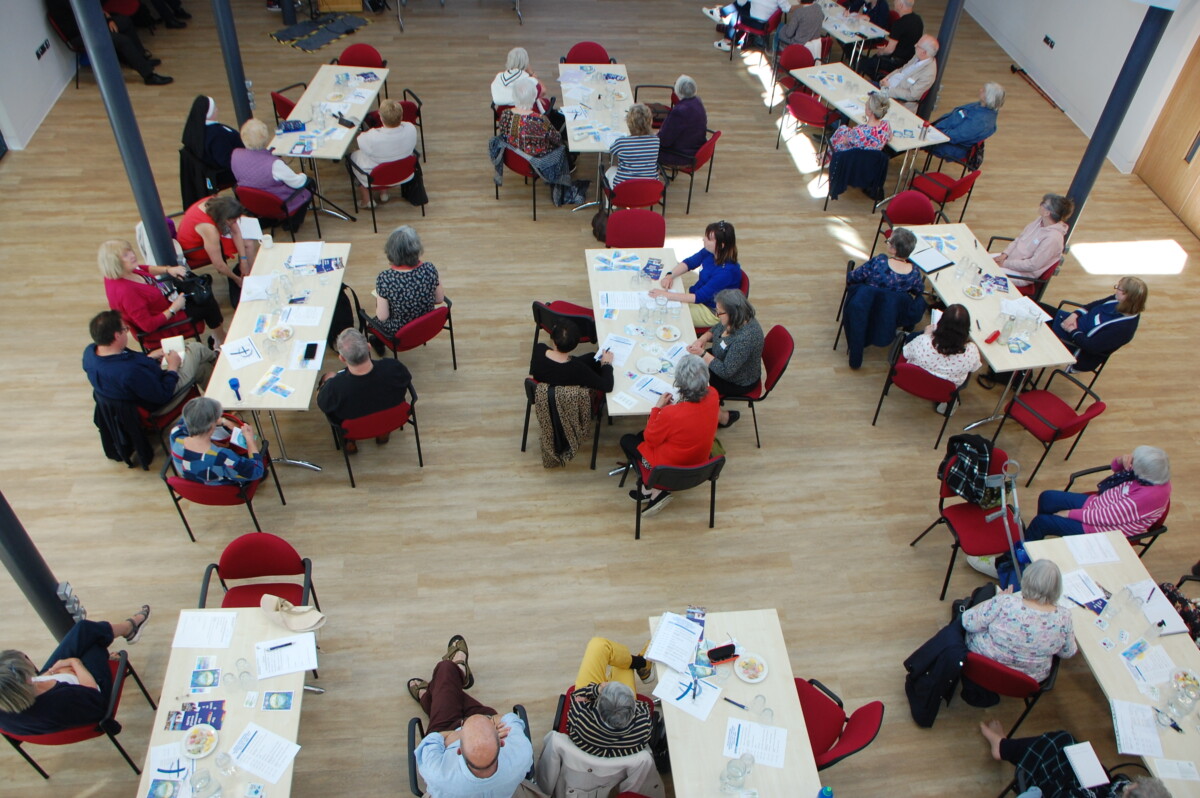Safeguarding

Parish Safeguarding Representatives Conference 2022
Every parish in the Diocese should have a Parish Safeguarding Representative. This is a Diocesan appointment, and is a voluntary role. The Parish Safeguarding Representative is responsible for promoting safe practice in activities involving children, young people and adults at risk. They also provide a link between the parish and the Diocesan Safeguarding Office.
The Parish Safeguarding Representative assists with the recruitment of people to ministries or roles within their parish, and helps people with the DBS check process.
The Parish Safeguarding Representative’s main responsibilities are:
Parish
-To ensure parishes and local communities are aware of the importance of protecting children, young people and adults at risk, and what is involved in promoting good and safe practice. This will include the basic concept of appropriate behaviour.
-To become familiar with the various parish activities in which children, young people and adults at risk are involved in within the parish, and carry out regular audits.
-To be involved in the safe recruitment of people to roles within the parish, and have responsibility for facilitating the DBS check procedure at parish level to ensure that everybody who is required to go through the procedure does so.
-To promote awareness of safeguarding policies and ensure up to date information is readily available. To offer a supportive presence in the Parish, whilst understanding that responsibility for pastoral care to victims/survivors of abuse or to alleged abusers is not part of the role.
-To meet locally with the Parish Priest and other key parish individuals and report to any Parish Council.
-To be accessible to children, young people and adults within the Parish.
-To not initiate investigative action.
Diocese
-To maintain regular communication with the Diocesan Safeguarding Office.
-To act as a central point for concerns to be shared and passed on to the Diocesan Safeguarding Office.
-To refer concerns and allegations to the Diocesan Safeguarding Office, or emergency services if appropriate.
-May be required to work closely with the Diocesan Safeguarding Team in practical matters following an allegation, disclosure or the identification of an offender in the Parish.
Training and Resources
-To attend training regularly and to pass on information and learning from these sessions.
-To assess local parish needs and liaise with the Diocesan Safeguarding Team to deliver appropriate training.
-To complete Educare e-learning modules and complete refresher modules annually.
If you would be interested in taking up this vital ministry in your parish, and feel that you possess the relevant skills, please speak to your Parish Priest.
Quick links
© Diocese of Plymouth 2019. All rights reserved
© Diocese of Plymouth 2019. All rights reserved
